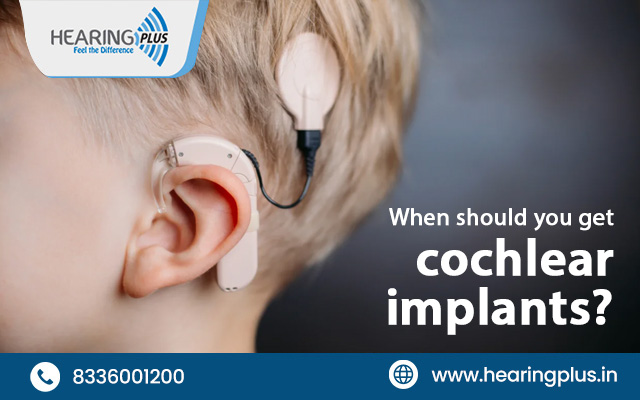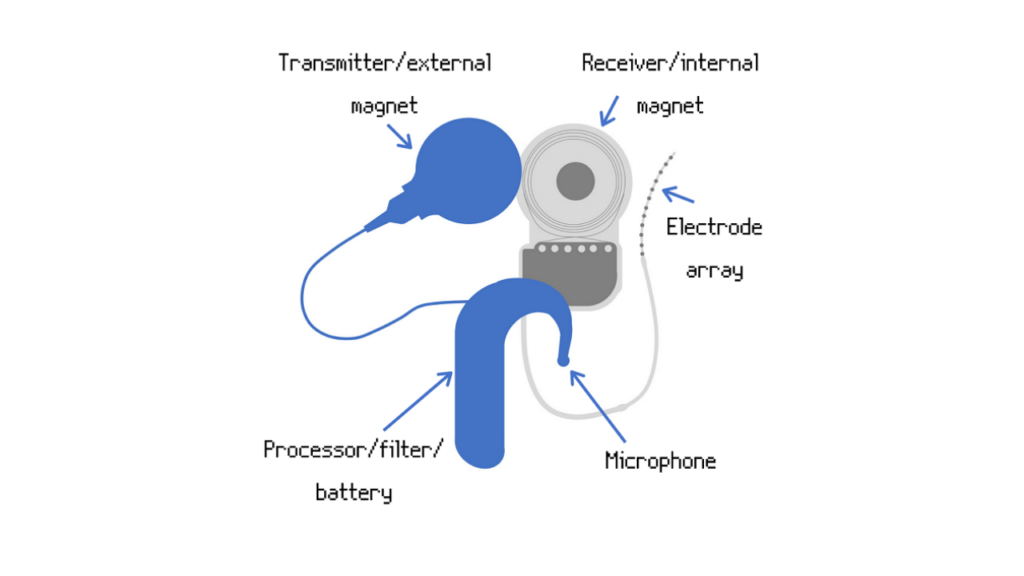
When should you get cochlear implants?
Are your hearing aids no longer effective in improving hearing ability and communication? It may be appropriate to consider cochlear implants.
Cochlear implants are electronic devices that are surgically implanted in the inner ear to provide a sense of sound to individuals with severe or profound hearing loss. A cochlear implant consists of two main components: an external processor and an internal implant. Cochlear implants in Kolkata are typically recommended for individuals with severe hearing issues who do not benefit from traditional hearing aids.
Who can get cochlear implants?
Cochlear implants are suitable for individuals who have severe hearing loss. The following factors are considered while getting cochlear implants, said the audiologist of a hearing aid center.
Degree of hearing loss: The individual must have a profound hearing loss, meaning they have significant difficulty hearing even with the use of hearing aids.
Age: Cochlear implants can be used in both adults and children. Children who are as young as 12 months old can get cochlear implants.
Communication needs: The individual should have a strong desire to improve their communication abilities and be willing to participate in the rehabilitation process.
Cochlear anatomy: The individual’s inner ear anatomy must be suitable for cochlear implantation.
General health: The individual must be healthy enough to undergo surgery and anesthesia.
Cognitive function: The individual must have adequate cognitive function to understand and use the implant effectively.
The decision to get cochlear implants should be made after a thorough evaluation by an audiologist, who can determine if the individual needs the procedure.
Working process of cochlear implants
The best cochlear implants work by directly stimulating the auditory nerve in the inner ear, bypassing the damaged or non-functioning hair cells. Here’s how the process works.
Sound is captured: The cochlear implant system consists of two main components: an external processor and an internal implant. The external processor captures sound from the environment and processes it into signals.
Signals are sent to the implant: The digital signals are then transmitted to the internal implant, which is surgically placed in the inner ear.
Implant stimulates the auditory nerve: The internal implant consists of an electrode array, which is inserted into the cochlea, and a receiver-stimulator, which is placed under the skin behind the ear. The electrode array stimulates the auditory nerve directly, bypassing the damaged or non-functioning hair cells in the inner ear.
Brain perceives sound: The stimulation of the auditory nerve sends signals to the brain, which perceives sound and enables the individual to hear speech and other sounds more clearly.
The process of adjusting to a cochlear implant can take time and requires rehabilitation and training with an audiologist. With proper programming and rehabilitation, cochlear implants can significantly improve communication and quality of life for individuals with severe or profound hearing impairment who are appropriate candidates for the procedure.
Conclusion
If hearing aids are no longer effective in improving hearing ability you may consider cochlear implants.
Patient Review
“I love HEARING PLUS, they changed my life… I m gaining self-confidence. Their new office is very spacious, organised, with good location.”
- Ranjini Chakraborty


